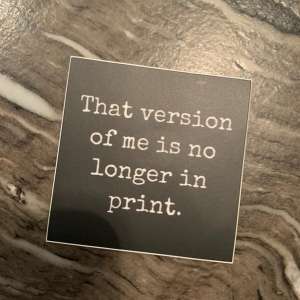When we are transitioning to a new version of ourselves (or our organization is doing so), part of the struggle is figuring out where we now fit.
Last week, I referenced two strong books that focus on the “art and science of belonging.” A third one we discussed at Wiser by Choice on Friday is called The Courage to Be Disliked. Although I can’t recommend this title as strongly, this passage stood out for me: “A sense of belonging is something that one acquires through one own’s efforts — it is not something one is endowed with…” (p. 171)
Much of the writing that comes out of a commitment to advancing equity, diversity, inclusion and accessibility positions belonging as a feeling that is at least influenced, if not endowed, by people in a position of privilege to others who are at risk of being excluded. Another title we covered, called Design for Belonging, would likely fall into this camp.
Positioning belonging instead as something we build for ourselves is problematic, to the extent that it might ignore the systemic barriers to doing so and underplay the negative power of “othering.” But the idea can also be empowering. This strong sense of agency and responsibility might be a helpful antidote to feeling powerless when it comes to investing in our social health.
All these books offer practical ideas of how to build a stronger sense of belonging, often by contributing intentionally to a community of which you would like to be a stronger part.
Can you hear how this idea can resonate for organizations too? Repositioning yourself in your market or ecosystem as a force to be reckoned with rather than waiting for permission to assume a leadership role can be a wise strategic move, and not one that necessarily requires you to step on others’ toes.
I wonder what we could do this week to build our sense of organizational and personal belonging more proactively rather than waiting for others to grant it?
When we do, I hope we’re welcomed with open arms. And if not? I trust we’ll feel empowered by standing strongly in our new identity and working toward the world we want, either way. Because as that same title would say, it takes courage to be disliked, and ultimately, we are not responsible for how others respond.

